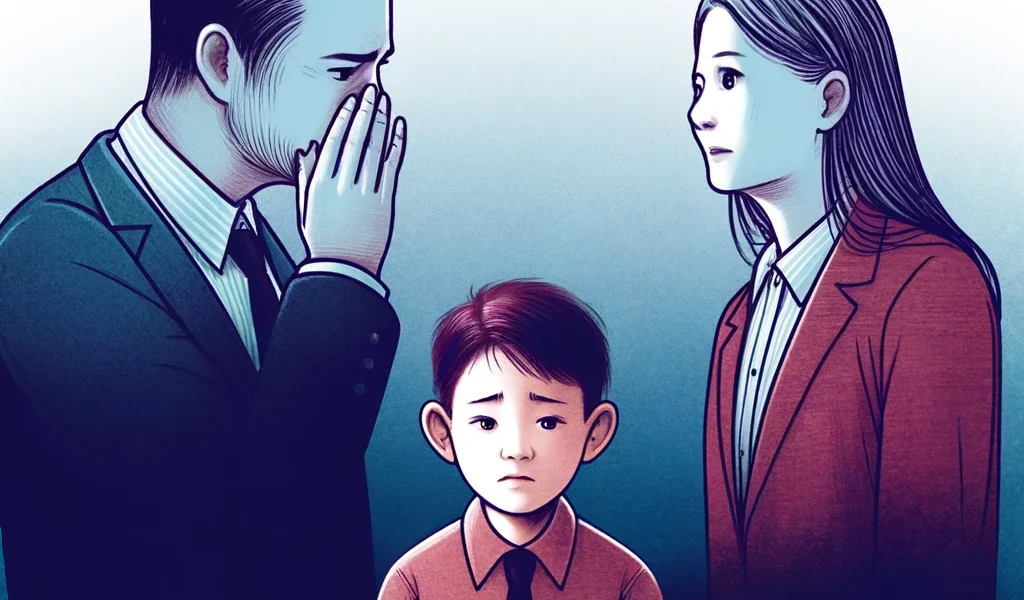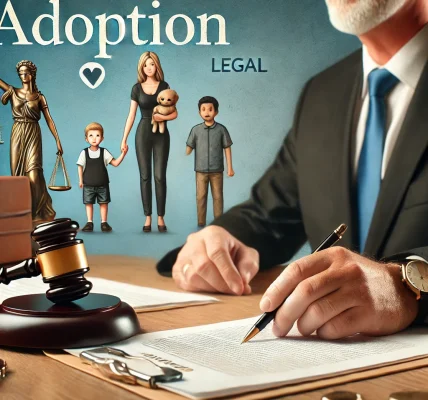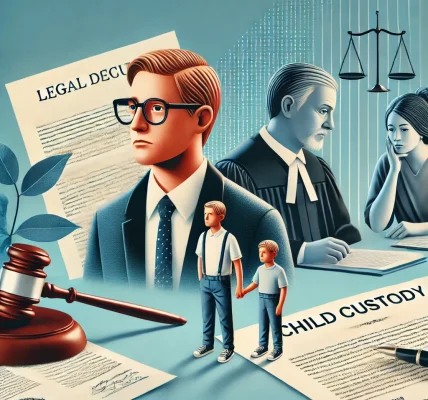Parental alienation is a serious issue that can have long-term emotional and psychological consequences for both children and parents. It occurs when one parent manipulates or influences a child to reject or distance themselves from the other parent, often during or after a divorce or custody dispute. This harmful behavior can damage parent-child relationships and complicate custody arrangements.
In this article, we will explore the legal remedies available to address parental alienation and effective strategies to prevent it.
What is Parental Alienation?
Parental alienation occurs when a child is influenced to reject or have a negative perception of one parent due to the actions of the other parent. This manipulation may be intentional or unintentional, but the result is the same—the child develops an unjustified estrangement from the alienated parent.
Signs of Parental Alienation:
- The child consistently criticizes the alienated parent without specific reasons.
- The child expresses only negative feelings about the alienated parent.
- The alienating parent restricts communication or visitation.
- The child uses language or accusations that seem beyond their understanding.
- The child refuses to visit or interact with the alienated parent despite a previously close relationship.
Parental alienation can take many forms, ranging from mild manipulation to severe emotional abuse, impacting the child’s well-being and future relationships.
Legal Remedies for Parental Alienation
When parental alienation occurs, legal action may be necessary to protect the child’s best interests and ensure that both parents maintain a healthy relationship with their child. Here are some legal remedies available:
1. Modifying Custody Arrangements
If a parent is found guilty of alienating the child, courts may modify custody agreements to protect the child’s well-being. Family courts prioritize the best interests of the child, and parental alienation can be a determining factor in adjusting custody rights.
Potential custody modifications include:
- Granting more custody time to the alienated parent.
- Restricting or supervising visitation for the alienating parent.
- In extreme cases, transferring primary custody to the alienated parent.
2. Court-Ordered Counseling or Therapy
Judges often mandate family therapy or reunification therapy for children affected by parental alienation. Therapy helps address the child’s emotional struggles and rebuilds the relationship between the child and the alienated parent.
3. Contempt of Court Charges
If an alienating parent violates an existing court-ordered custody arrangement by restricting visitation, interfering with communication, or making false allegations, they may be held in contempt of court. This could lead to fines, mandatory corrective actions, or even jail time in extreme cases.
4. Parental Alienation as Child Abuse
In severe cases, courts may consider parental alienation a form of emotional child abuse. This could lead to investigations by child protective services and, if necessary, legal action against the alienating parent.
5. Protective Orders and Injunctions
If an alienating parent’s actions are harmful or threatening, courts may issue protective orders that restrict their ability to manipulate or influence the child against the other parent.
6. Legal Intervention for False Allegations
Sometimes, an alienating parent may make false abuse allegations against the other parent to justify limited or no contact. If proven false, courts may impose legal consequences, such as loss of custody or criminal charges for perjury.
Preventing Parental Alienation
Preventing parental alienation requires proactive steps to ensure healthy co-parenting and a positive environment for the child.
1. Prioritize Co-Parenting Cooperation
- Keep communication with the other parent respectful and child-focused.
- Avoid discussing legal disputes or personal conflicts in front of the child.
- Encourage the child to have a healthy relationship with both parents.
2. Establish Clear Custody Agreements
A well-defined parenting plan helps prevent conflicts that may lead to parental alienation. The agreement should outline:
- Clear custody and visitation schedules.
- Communication guidelines for both parents.
- Dispute resolution methods.
3. Educate Children on Healthy Relationships
Children should not feel pressured to take sides in parental disputes. Encourage open discussions about family dynamics and reassure them that both parents love and support them.
4. Seek Mediation and Counseling
If tensions between parents escalate, professional mediation can help resolve conflicts before they result in alienation. Co-parenting counseling is also a valuable tool to maintain a healthy parenting environment.
5. Document and Report Alienation Behaviors
If you suspect parental alienation, keep detailed records of:
- Missed visitations or communication blocks.
- Negative statements made by the child that seem influenced by the other parent.
- Any attempts to restrict your parental rights.
This documentation can be used as evidence in court if legal intervention becomes necessary.
6. Utilize Technology for Co-Parenting Communication
Using co-parenting apps like OurFamilyWizard or TalkingParents ensures that communication remains professional and child-focused. These tools can also track interactions, reducing misunderstandings and providing evidence if needed.
The Long-Term Impact of Parental Alienation
Parental alienation doesn’t just affect the immediate parent-child relationship; it can have lasting psychological and emotional effects on the child, including:
- Low self-esteem and trust issues.
- Difficulty forming healthy relationships.
- Emotional instability and depression.
- Struggles with identity and self-worth.
By addressing parental alienation early through legal action and preventive strategies, both parents can ensure their child’s emotional well-being and secure a balanced upbringing.
Conclusion
Parental alienation is a serious issue that can harm children and disrupt family relationships. Recognizing the signs and taking proactive legal and preventive measures can help protect parental rights and ensure that children maintain strong, healthy relationships with both parents. If you suspect parental alienation, consulting a family law attorney is essential to navigate legal options and safeguard your relationship with your child.




